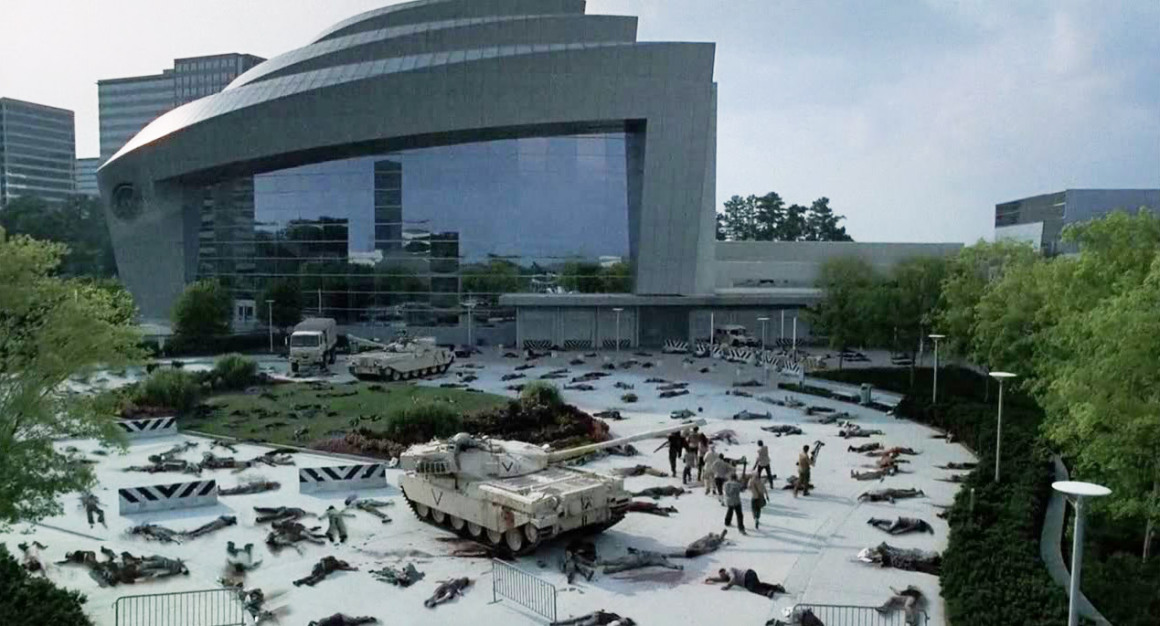The horror stories about Ebola seem to be proliferating as quickly as the disease itself. International newspapers and even governmental edicts speak of zombies. Here in the US, Twitter is ablaze with conspiracies tying Ebola to infiltrating immigrants. On the airwaves, Laura Ingram and Rush Limbaugh accuse President Obama of deliberately sacrificing US interests to atone for colonialism and slavery. Aghast at these paranoid fairy tales, many commentators don’t understand why we can’t just concentrate on the facts at hand.

But the facts underlying this epidemic—that poverty and conflict provide the perfect breeding ground for the spread of disease—are, in truth, the result of centuries-old fictions. Once we look at the history those fictions engendered, the current medical data offers a tragic ending to an old story promising that somehow slaveholding nations could offshore their ghosts. That Liberia and Sierra Leone—the two very nations in which Western countries sought to bury the sins of their slaveholding pasts—now conjure stories of zombies bent on avenging colonial wrongs should surprise no one.

In light of the great popularity of shows like The Walking Dead, films like World War Z and the proliferation of books like Feed and First Days (both of which, by the way, explicitly tie zombie outbreaks to the Ebola/Marburg family of viruses) we might be tempted to think that the current zombie craze is a twentieth-century invention, made particularly salient in the twenty-first century by the postmodern threat of roving, mindless gangs of internet trolls. But the zombie’s story is in fact tied to the very colonizing impulse behind Ingram’s and Limbaugh’s bogeymen. The development of the new world, and indeed the founding of the United States itself, was enabled by slavery’s demonic desire to turn individual people into hordes of indistinguishable bodies.
It was the curse of slavery that first spawned the monster we’ve come to know as the zombie—a body split off from the mind of its owner, subject to powers beyond its control. As Amy Wilentz has argued, the zombie is simply the “logical offspring of New World slavery.” For modern Americans deeply invested in the idea of a postracial society, zombies evoke the fear that this past—a past that perhaps we have not thoroughly atoned for—will not stay in the ground.
****
[dropcap style=”normal or inverse or boxed”]In[/dropcap] the nineteenth century, when slavery still sought to turn millions of African Americans into the walking dead, guilty whites cast around for a way to bury the effects of this crime. In 1816 Presbyterian minister Robert Finley was terrified of the evil that would arise if the past weren’t buried. Even once slavery was abolished, Finley warned, the traumatic memories would refuse to be put to rest, eventually contaminating the nation. “The evil therefore increases every year,” Finley warned, “and the gloomy picture grows darker continually, so that the question is often and anxiously asked—What will be the end of all this?” To disrupt the memory of seeking to reduce millions of human beings to mere bodies deprived of rights or voice, organizers devised a plan. They would make the descendants of slavery’s curse simply disappear. Reverend Finley created the African Colonization Society, an organization that gathered support from senators, several presidents, slaveholders and abolitionists alike. Even Abraham Lincoln was intrigued with the idea of colonization as a way to put slavery to rest.
The colony the American Colonization Society created and sought to populate with the undead memories of slavery was none other than the nation of Liberia. In doing so, organizers sought to emulate the work Britain had done years earlier, when they founded a nearby African nation created explicitly to receive the descendants of slavery—Sierra Leone. These acts of colonization, and those of other European powers, would result in slavery’s crimes being reanimated in different forms. Colonizers largely saw Africa as a pool of resources to be mined, and Africans largely as laboring bodies designed to extract those resources.
Now Sierra Leone and Liberia are ground zero for the Ebola virus, which health officials tell us, continues to replicate at an exponential rate. Here in the United States, doctors insist that our superior infrastructure will protect us. But it is a dangerous fiction to think that we can continue to reap the rewards of cheap labor and resources while keeping the poverty and misery required to generate them quarantined in the bodies of those we’ve already written off as dead.
When Thomas Eric Duncan was hospitalized for Ebola in Dallas, he dispelled the fantasy that the United States could somehow remain immune to this virus. Not surprisingly, the horror fictions began replicating at a still more frantic pace. Tellingly, many of these terrifying fantasies conjure images of slavery—the government will take away our freedom of movement; our bodies will be subject to the appetites of rapacious others; if you run, they will catch you. The current cure proposed by many frightened Americans reanimates the logic of the African Colonization Society: we should put what we fear at a distance. Borders should be closed; flights should be cancelled. Take the problem and bury it somewhere far, far away.
Rather than relying solely on scientific data to silence these debilitating fictions, I suggest we turn to other stories, ones that might allow for better endings. One of the most devastating moments in the fictional world of The Walking Dead emerges when Rick shares the facts he’s learned from a private conversation with a CDC official. “Whatever it is, we all carry it,” he tells the horrified group of survivors. In the fantasy concocted by AMC, no one has escaped the virus—it’s going to get everyone, sooner or later. Instead of trying to kill off the zombie stories, we’d be better off embracing the truth they contain: running and hiding won’t save anyone. The sickness of greed, and the arrogant isolation that such greed necessitates, has been cultivating disaster for a long, long time. We’re all infected. The sooner we realize that, the sooner we might start acting like we’re all in this together.
–Anna Mae Duane


This is such a thought-provoking piece. I really enjoyed reading it. Well done!
Thank you!
[…] the front lines of the outbreak: The cultural links between ebola and zombies; how useful airport screening will probably be; the basic science that could have prevented […]
[…] Ebola, Zombies, and Our Viral Past. […]